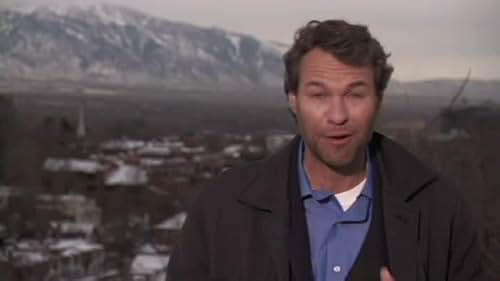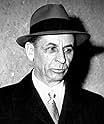Meyer Lansky(1902-1983)
Polish-born Meyer Lansky emigrated to New York with his family and grew
up in the Lower East Side. It was there that he ran into Bugsy Siegel, at
the time a teenaged neighborhood gangster, and the two would remain
lifelong friends. When Lansky saw the kinds of money Siegel was making
from his various illegal activities--mainly gambling--he decided that
this was the line of work for him. His specialty was the floating crap
game, and he was so successful at that and other gambling schemes that
he and Siegel soon controlled a large gang that was known as the Bugs
and Meyer Mob. The gang's size, and Lansky's business acumen, attracted
the attention of another local gangster, Lucky Luciano, who approached Lansky
and invited him to participate in his idea of forming a national
criminal syndicate. The Prohibition Era was a goldmine for Lansky and
other gangsters, and he, Siegel and Luciano became incredibly wealthy
from bootlegging, prostitution, drug smuggling, gambling and other
rackets. In the 1930s Luciano's dream of a national crime commission
became a reality, and Lansky was appointed to a seat on its board of
directors. Lansky's specialty was financial matters and he proved to be
a genius at laundering the mob's illegal profits and squeezing every
last penny from its legal and illegal investments. When his friend
Luciano was sent to prison, Lansky managed to get him an early release
by ensuring his cooperation with the U.S. government in its preparation
for the invasion of Sicily. After Luciano was deported to Italy, Lansky
took over the management of his empire. Friendship only went so far in
the mob, however. His good friend Siegel got into trouble by wasting
millions of dollars of "wiseguy" money building Las Vegas, and when the
decision was made to have him killed, Lansky went along with it.
In the 1950s Lansky formed a friendship with Cuban dictator Fulgencio Batista, and the mob was given basically a blank check to run all the rackets in Cuba, especially the gambling casinos, prostitution and drug smuggling, with a large cut of the profits going to Batista. From Cuba Lansky spread his gambling and prostitution rackets to other South American countries, and even had a hand--although not a public one--in the casinos in Hong Kong and Macao. Lansky's fortunes began to wane, however, in the late 1960s when the U.S. government went after him for income tax evasion. He fled to Israel, and claimed citizenship there as a returning Jew. However, after legal wrangling with the Israeli government, Lansky's visa was revoked and he was deported back to the U.S. He stood trial, but managed to avoid conviction, reportedly because of his extensive political connections. He settled into a comfortable life in Miami, Florida, where he died of a heart attack in 1983.
In the 1950s Lansky formed a friendship with Cuban dictator Fulgencio Batista, and the mob was given basically a blank check to run all the rackets in Cuba, especially the gambling casinos, prostitution and drug smuggling, with a large cut of the profits going to Batista. From Cuba Lansky spread his gambling and prostitution rackets to other South American countries, and even had a hand--although not a public one--in the casinos in Hong Kong and Macao. Lansky's fortunes began to wane, however, in the late 1960s when the U.S. government went after him for income tax evasion. He fled to Israel, and claimed citizenship there as a returning Jew. However, after legal wrangling with the Israeli government, Lansky's visa was revoked and he was deported back to the U.S. He stood trial, but managed to avoid conviction, reportedly because of his extensive political connections. He settled into a comfortable life in Miami, Florida, where he died of a heart attack in 1983.


